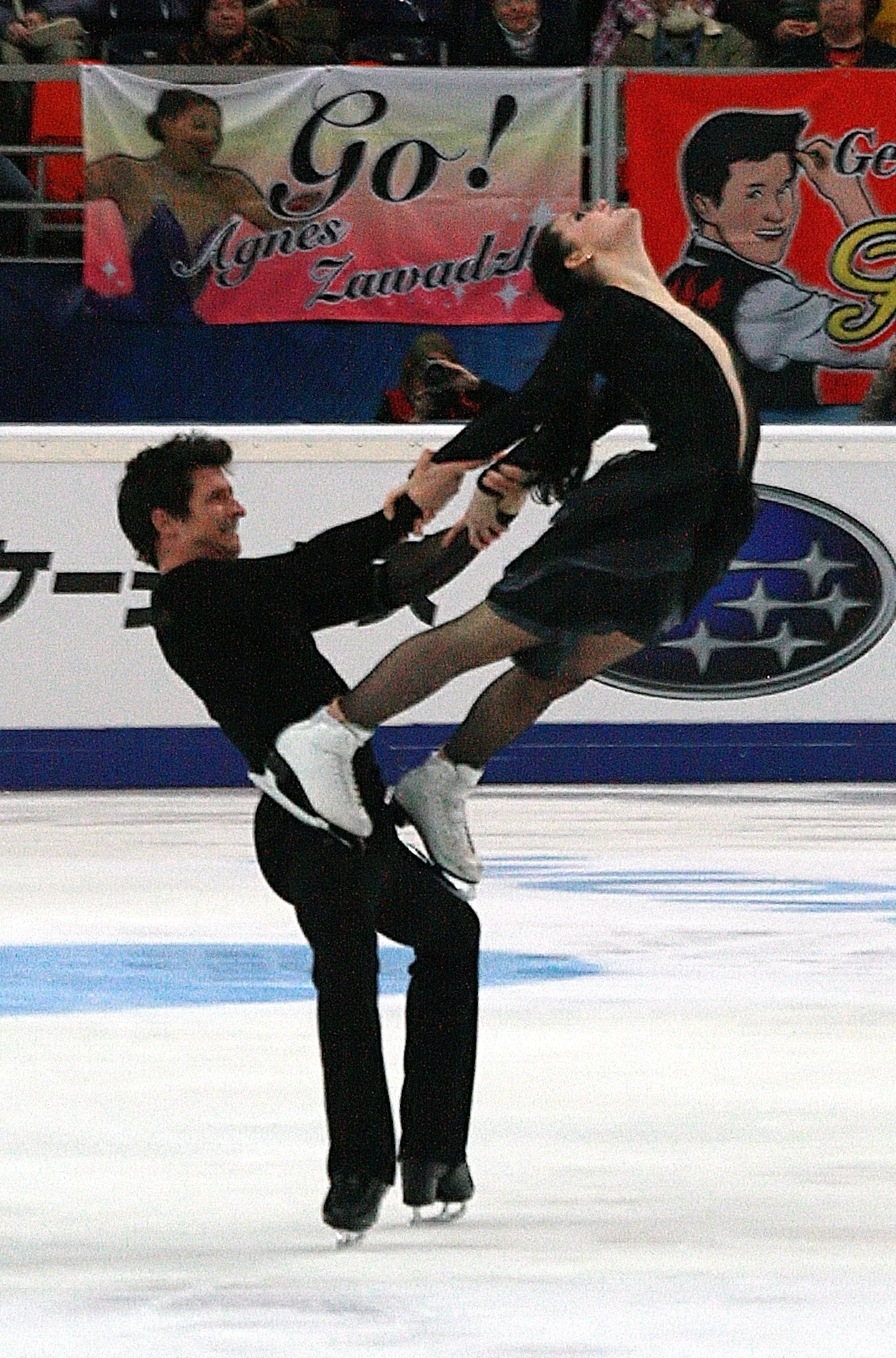Charlie White and Meryl Davis at the 2006 Skate Canada. Photograph by Caroline Paré.
The triumph of Meryl Davis and Charlie White of the United States over Tessa Virtue and Scott Moir of Canada in the Olympic ice dancing competition marks the latest and perhaps last chapter in one of the best rivalries in sports.
Scott Moir and Tessa Virtue perform their “Carmen”-themed program at the 2012 Rostelecom Cup.
Rivalry has gotten a bad rap. (Cain and Abel, for starters. And who can forget Tonya and Nancy? Certainly not NBC, which has a Mary Carillo documentary airing later during the Olympics as we recall the 20th anniversary of Nancy’s knee-whacking at the hands of Tonya cohorts.)
But true rivals can be friends, intimates – and in my just-released novel, “Water Music,” even lovers – as long as they respect each other and leave the competition on the field of “battle.” As my rivals discover, that’s easier said than done.
But it can be done. Mickey Mantle and Roger Maris were true rivals. During the glorious summer of 1961, they chased Babe Ruth’s single season home run record – while sharing an apartment. (They even shopped and barbecued together.)
Davis and White and Virtue and Moir are rivals in that tradition. They have trained together in Michigan under Marina Zoueva, who remarkably has managed to give each team what it needs without neglecting the other. Davis and White, skating last night to Rimsky-Korsakov’s hypnotic “Scheherazade,” with its echoes of Nijinsky, are more modern – expressive, theatrical, breezy. They flow. Virtue and Moir – equally handsome in a totally complementary way – are stylistic complements as well, classical, artistic and demure in their interpretation of Shostakovich’s abstractions.
The Canadians took gold in Vancouver; the Americans, reigning world champs, gold in Sochi. What was the difference? In great rivalries, one team or individual pushes the other, so that the underdog progresses.
Sometimes that results in the dominant rival being eclipsed. Say what you want about Roger Federer-Rafael Nadal, but Federer never again had the upper hand once Nadal started beating him. Rafanole (Nadal and Novak Djokovic), on the other hand, is like chess match or a high-stakes poker game – point/counterpoint; I see your bet/I raise your bet. It’s a relationship, one in which they clearly enjoy each other’s company. (How about the press conference on their recent South American swing in which Rafa decided to translate Nole’s remarks from English into – English. Ah, the hazards of being multilingual.) Indeed, if you saw them playing tennis on a barge near a glacier during that tour – as I reported on in this blog – you saw two people who understand that each derives something from the other in a seesaw battle of wits.
With Virtue and Moir apparently in their final competition, will there be a new rivalry for Davis and White? Only time will tell.
And time is the greatest rival of us all.

